"Required Reading" is an ongoing series where we look at some of the ancillary media related to our favorite games; from books, to comics, to films. We'll take a look at the story behind the creation of the piece, if any, and review the quality of the work as a whole. Finally, we'll discuss whether it adds anything of substance to the narrative of the franchise. Today, we'll be taking a look at...
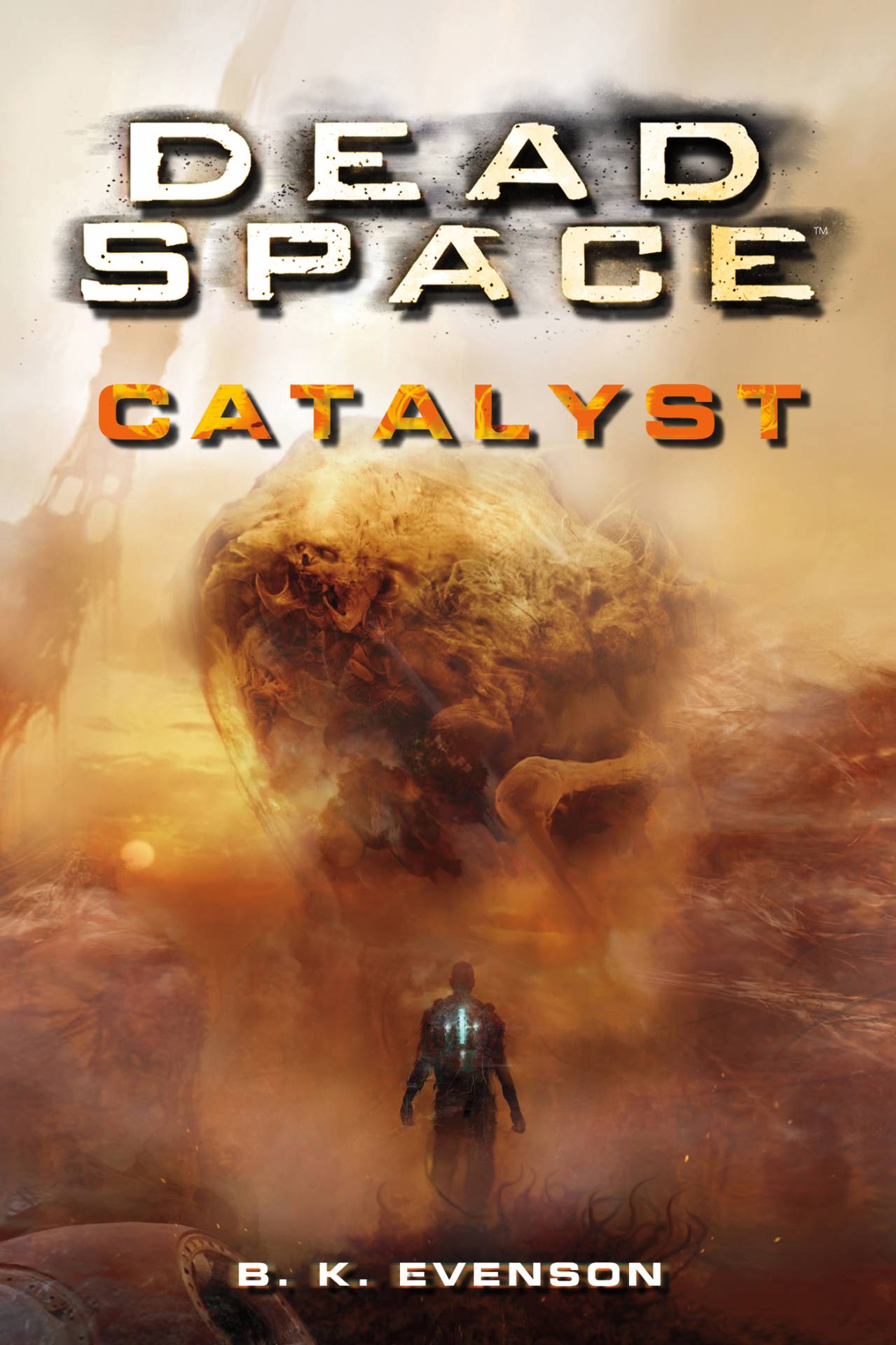
Death and carnage and those ... things.
The second novel in the Dead Space franchise, Dead Space: Catalyst is a sequel to Martyr written by the same author, B. K. Evenson. Despite this, there is little to no connection between the novels, as this takes place 80 years later, after the founding of Unitology and the death of Michael Altman. This novel is emblematic, though, of the problems with video game novels. By design, they are merely an extension of an existing universe, which means they must focus on minute background details, or remain self-contained so they don't hinder the creativity of the game designers or counter what's already been planned or stated. Martyr was an example of the former, telling the origins of Altman, Unitology, and humanity's first encounter with the Markers. Catalyst takes a different approach by being an example of the latter. Nothing is really changed over the course of the story, it's just about the lives of a handful of people at a certain point in the Dead Space timeline, and therein lies the problem.
More and more people, though, were sensing a call to Convergence, a call to lose their life so that they could find it, so that they could find a larger sense of unity and life in the one.
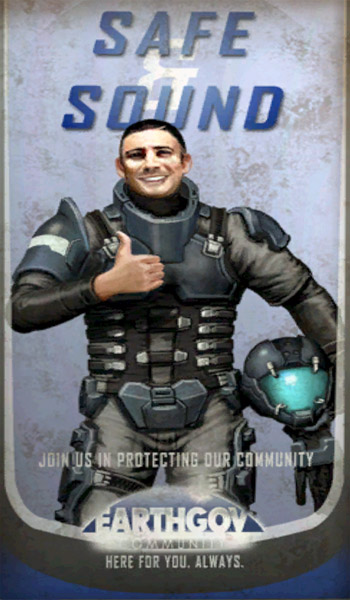
In the years since Martyr, Unitology has become a fully-formed religion with the memory of Michael Altman at its head. As hinted at in the very end of its predecessor, members of Unitology have even infiltrated the highest ranks of EarthGov, mankind's ruling government body. Catalyst, though, relegates these details to the background in favor of the story of two brothers, Jensi and Istvan Seto. Jensi is a fairly normal child who lives with foster parents and makes friends with a boy named Henry after the death of his mother. Istvan, on the other hand, is portrayed as slightly unhinged, seeing a "shadow man" and hearing voices constantly, and he runs off to live on his own.
As one of the two main protagonists, though, Istvan is troublesome. I personally find it irritating when a narrator is unhinged, or mentally challenged, or otherwise altered; because the writing always comes off as incredibly cheesy to me. A sane person trying to write out the thought-processes of the insane feels... naively inauthentic, for lack of a better word; simplistic. Istvan is portrayed as slightly autistic, unable to understand the emotions and motivations of other people, as he is constantly distracted by the world "beyond the veil". He also has a bit of "A Beautiful Mind" in the way he sees things, constantly looking for patterns, or numbers, or connections. Despite not being outright stated, it's clear that Istvan has a deep connection to the Marker, and is something of a savant in that respect, and it's implied that the nature of his mind makes him more susceptible and capable to comprehend its messages. Isaac Clarke and Michael Altman connected to the Marker due to their intelligence, and likewise, Istvan's special mind allows him to also download its blueprints.
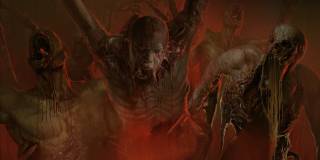
The first third of this book tells the story of the two brothers' childhood, with almost no connection to the Dead Space franchise as a whole aside from Istvan's ... sensitivities. While this normally would serve as a way to get us invested in the characters and their plight, as this is a much more character-focused novel than most video game adaptations, the characters in Catalyst are just plain boring. Jensi and his best friend Henry have no personality to speak of other than their wary protectiveness over Istvan, and Istvan is just an extreme and permanent case of the Marker-infected people we've seen in every other piece of Dead Space fiction.
Just under halfway through the book, the inciting incident finally happens, where the Marker tricks Istvan into publicly murdering a politician in a manipulation of events that ultimately bring him to a penal colony on a planet in restricted space. Of course this planet is one of three sites where EarthGov is trying to build Red Markers based off of the blueprints Michael Altman copied down in Martyr. The Marker wants Istvan close so he can be more easily used as a tool for Convergence. After farting around for the first half of the book, this is the point where things can start getting interesting: a Necromorph outbreak on a quarantined prison colony, Istvan connecting with the Marker, and Henry and Jensi trying to break in and save him. Even without enlightening us further on the universe of Dead Space, that's a somewhat interesting premise, but since the characters are so boring and we aren't invested in them (despite the author's clear attempt at this), it just feels very formulaic. People start seeing things, going crazy, getting violent, getting suicidal. Eventually the Necromorphs show up, people almost die or do die, and then the survivors fight to the Marker and the crazies behind it and things end, usually on a down note.
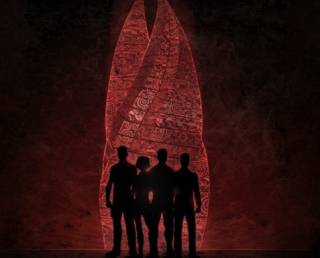
This shows why Dead Space doesn't lend itself to books very well. If you're not shedding light on perceived mysteries in the franchise and deepening our understanding, it's kind of the same thing every time. Monsters killing people and the Marker getting in people's heads. It's not all that different from zombie fiction: the basic beats are all the same. Where zombie fiction has grown, however, is in focusing on the people involved, and their interactions and reactions. The key to the proliferation of zombie pop culture is in the edict that "man is the true monster", and that's what Dead Space fiction should more heavily emphasize. This is weakened, however, by the fact that even when "man" is the antagonist of the story, it's really "The Marker" behind everything, pulling all the strings. It kind of robs the concept of any depth or pathos. Unless we're learning more about The Marker or the Necromorphs, the fiction is kind of a waste of time.
Clear proof that Unitology was the only true religion, and that Michael Altman had been a true prophet.
In the end, Dead Space: Catalyst is full of boring characters going through situations we've already seen. Aside from the plot revealing that EarthGov has begun building Red Markers (something that we deal with explicitly in all of the Dead Space games), there really is no relevance to the franchise whatsoever. It's not an interesting self-contained story, and it doesn't deepen the fiction in any way. For both of those reasons, this novel can be safely skipped and you won't be missing out on anything.
Have you read Dead Space: Catalyst? Do you plan to? What are your thoughts on the book or the universe as a whole? Feel free to share your thoughts in the comments below.
Thanks for reading!
For more Required Reading, follow the links below:
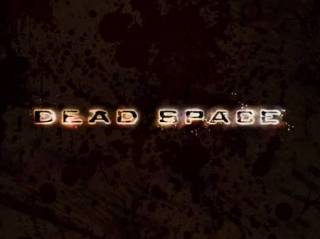
Log in to comment